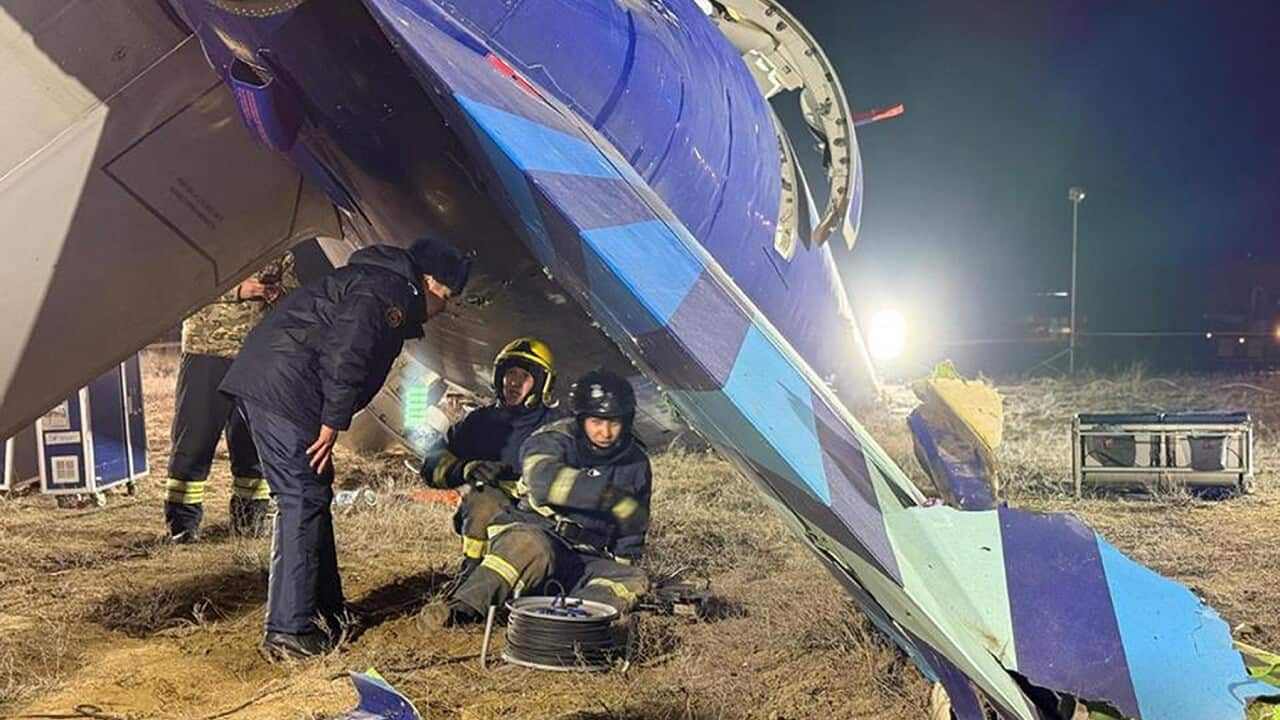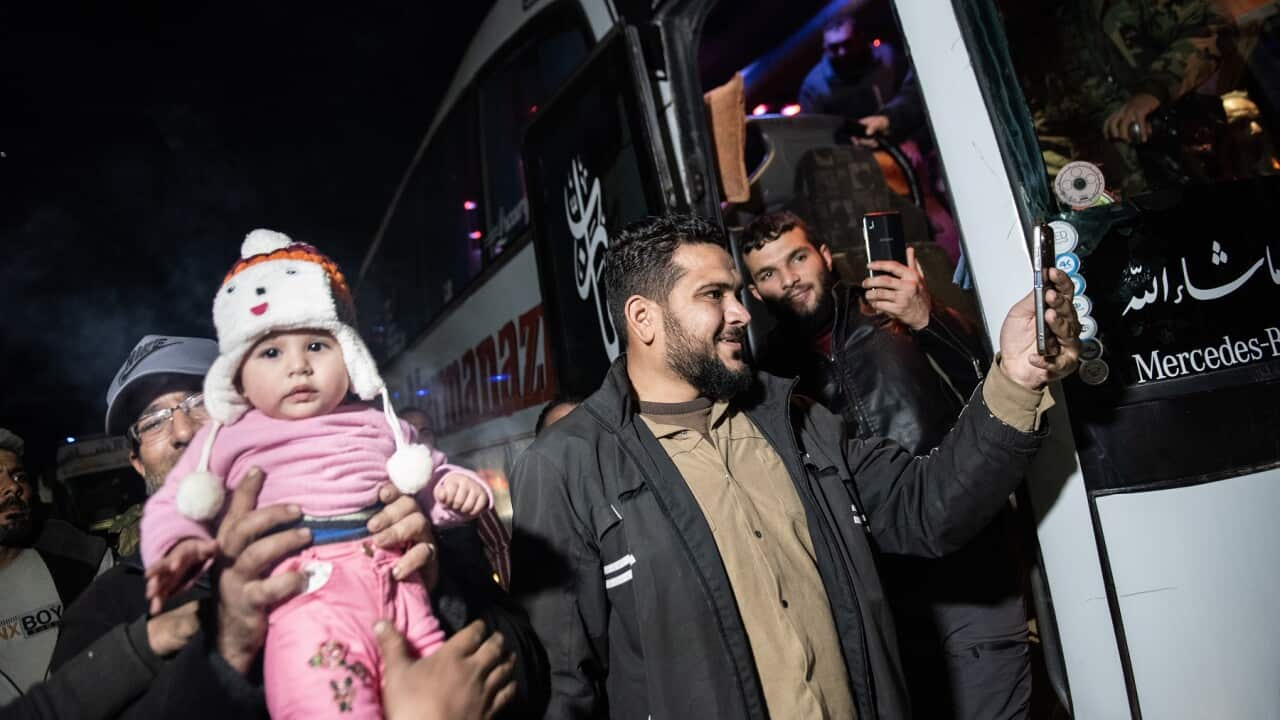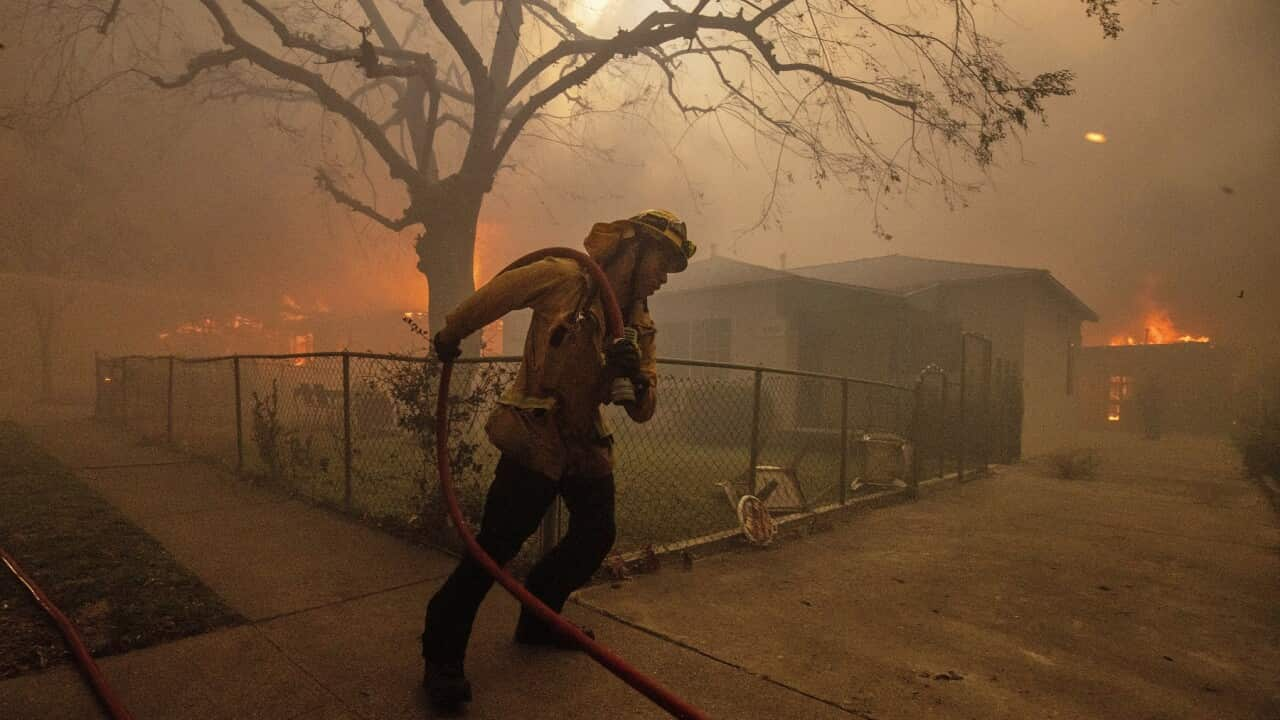TRANSCRIPT
In Kazakhstan, shocked locals cry out as a passenger plane hurtles towards the ground on Christmas Day.
Shortly after, rescue crews are racing to the site.
There had been 67 people on board flight J2-8243, it's been confirmed that 38 of them died in the crash.
The father of one survivor, left speechless.
“I don’t know what to say, honestly. I spoke with my son today. Thank God, his condition is good. If everything goes well today and tomorrow, he will come to Baku. Let’s see what happens next.”
The jet, built by Brazilian company Embraer, was en route from Baku, Azerbaijan to Grozny in Russia’s Chechnya region - an area where Moscow has repeatedly used air defence systems against Ukrainian drone strikes.
The plane veered hundreds of kilometres off course across the Caspian Sea, potentially due to bad weather, before crashing near Aktau in Kazakhstan.
Azerbaijan's President, Ilham Aliyev, says the cause of the crash is under investigation.
“I gave relevant instructions and spoke to the prime minister. Under his supervision, a commission has been set up. At the same time, the delegation of Azerbaijan was sent to the city of Aktau where the accident had happened.”
So far, multiple theories have emerged to explain what went wrong.
The most prominent - the plane was struck by Russian air defences and had its communications paralysed by electronic warfare systems.
That's according to four Reuters sources with knowledge of the preliminary findings.
However, Professor of international affairs at Georgetown University, Charles Kupchan, says it's yet to be confirmed.
“There are various reports. One is a bird strike, that the plane crashed after hitting a flock of birds. A second theory is that because the plane may have been diverted, the Russians were not sure what the aircraft was. And this is an area that has experienced drone strikes from Ukraine, and as a consequence, anti-aircraft fire may have been directed towards this aircraft.”
For many, the incident will be reminiscent of MH17 - a Malaysian Airlines flight that was shot down by Russian-backed forces with a missile in 2014.
Professor Kupchan says that's because incidents like this aren't rare.
“These kinds of crashes, if indeed it is a crash that was the result of anti-aircraft fire, are not that unusual in war zones.”
And he says the incident could prompt action.
“It may mean that more airspace gets shut down, that different procedures are put in place to avoid these kinds of incidents in which civilian aircraft are exposed to fire that is related to an armed conflict. But again, we have to wait until we have more facts.”
Russian President, Vladimir Putin, acknowledged the incident but has not taken blame.
“I would like to express my condolences to the families of the casualties and all the injured, and let's hope for their recovery.”
There is no suggestion that if the plane was downed by Russian air defences, the attack was deliberate.
However, it is understood Baku expects the Russian side to confess to the shooting if it did occur.
Former Pentagon Senior Advisor on international security, Ann Mafrie Dailey, says Russia's response could have international ramifications.
“If Russia tries to deny this or cover this up, it could lead to a rift in Russian relations with Azerbaijan. If Russia doesn't apologise for what it's done and provide greater clarity in its airspace management, that could also lead to further degradation of relations between Russia and other countries along its border, particularly in Central Asia.”
As investigations continue, Russian military expert Yan Matveyev says there are plenty more questions to answer.
"For me, it remains a big question why the plane decided, why the crew decided to fly the plane over the sea, when it was clearly damaged, and not land somewhere in Russia.”













